Nontraditional credit cards have been growing in popularity, offering a flexible alternative for people seeking different financial options. Unlike traditional credit cards, these come with unique features that cater to diverse needs. Their approval processes and credit scoring criteria are often more accessible, making them a great choice for individuals looking for something tailored to their situation.
Definition of Nontraditional Credit Cards
Nontraditional credit cards are innovative financial products specifically created for individuals who might struggle to qualify for standard credit cards. This struggle often arises from factors like limited credit history, which can occur for first-time credit users, or lower credit scores, often a consequence of negative credit events such as missed payments or high utilization rates.
Unlike traditional credit card issuers, who primarily evaluate applicants based on credit scores and established credit history, nontraditional credit card companies take a more holistic approach in their assessment process.
These cards typically utilize alternative data to evaluate creditworthiness. This alternative data can include a range of financial behaviors beyond what is traditionally looked at, such as the applicant's regular income and overall spending habits. For instance, a steady income—regardless of whether it stems from a job, freelance work, or even government benefits—may indicate that an individual can responsibly manage credit, even if they lack a significant credit history.
Nontraditional credit card issuers may also consider payment histories related to essential household expenses, such as utility bills, rent payments, and even phone bills. Demonstrating a consistent record of meeting these obligations can be a strong indicator of an individual’s reliability in managing debt.
By incorporating this broader understanding of financial responsibility, nontraditional credit cards significantly improve access to credit for those previously excluded from traditional credit cards. This flexibility is paramount, as it allows people to establish their credit profiles while simultaneously having the opportunity to build good financial habits. This progressive approach not only supports people who are new to credit but also aids those working to recover from challenging financial situations.
Nontraditional credit cards can often come with fewer associated fees and may even offer tailored rewards programs designed to cater to specific demographic groups, such as students or those looking to rebuild their credit. This consideration for individual needs is essential in creating a more supportive credit environment.
These credit cards play a vital role in helping consumers with limited credit options. They serve as a step towards greater financial prospects and stability, helping people to build healthy credit behaviors, which can lead to improved credit scores over time. By considering alternative data in their approval processes, these cards help create a responsible credit culture that benefits both consumers and the economy.
Key Differences Between Nontraditional and Traditional Credit Cards
The main differences between nontraditional and traditional credit cards are rooted in their application requirements, approval processes, and fee structures. Traditional credit cards tend to impose stricter criteria, with an emphasis on credit scores and established credit history to determine eligibility. This often leaves people with limited credit backgrounds or those recovering from past financial difficulties at a disadvantage.
In contrast, nontraditional credit cards are designed with flexibility in mind. They typically utilize more lenient approval criteria, aiming to assess a broader range of actions to define financial responsibility through alternative data sources. This alternative data may include regular income, spending habits, and payment histories for essential bills such as utilities and rent, allowing applicants to define their creditworthiness beyond mere scores.
Nontraditional credit cards may also come with fewer associated fees, making them a more affordable choice for consumers. Some of these cards also offer tailored rewards programs specifically designed for certain demographic groups, such as students or individuals working to rebuild their credit. These personalized offerings increase the appeal of nontraditional credit cards, as they fit in well with the unique needs and financial goals of these consumers.
Why Consumers Might Choose Nontraditional Options
People can often gravitate towards nontraditional credit cards for a variety of reasons, primarily based around the need for flexibility and accessibility. Many people, especially those new to credit or recovering from past financial setbacks, find themselves facing the challenge of meeting the credit requirements asked for by traditional credit card issuers. Nontraditional options present a welcoming alternative, allowing these consumers to establish or improve their credit scores without the pressure of traditional card approval demands.
The appeal of nontraditional credit cards extends beyond just score improvement; they play an important role in promoting financial participation for those who have historically been underserved by conventional credit products. By considering alternative data in their assessment processes—such as steady income, payment histories for essential bills, and general financial behaviors—these cards enable people to build healthier credit profiles. This gives them the opportunity to demonstrate their financial responsibility in a manner that traditional approaches often overlook.
Where to Find Nontraditional Credit Cards
Finding nontraditional credit cards has become increasingly easier with the rise of various online platforms and financial institutions dedicated to offering innovative credit solutions. Many online financial marketplaces provide side-by-side comparisons of different nontraditional credit card options, allowing consumers to evaluate terms, fees, and rewards easily.
Several financial institutions are known for specializing in nontraditional credit solutions. Lenders like Capital One, Discover, and Upstart have designed specific credit cards catering to people seeking a more flexible application process. These companies may use alternative data to assess creditworthiness, making their products more accessible to those looking to build or improve their credit scores. By exploring these online platforms and institutions, consumers can confidently identify nontraditional credit cards that best meet their financial needs.
8 Tips for Researching and Choosing the Right Card Provider
- Understand Your Financial Goals: Begin by clearly defining what you wish to achieve with your credit card. Are you looking to build credit, manage expenses, or earn rewards? Understanding your goals will help you narrow down your options.
- Compare Fees: Not all credit cards are created equal when it comes to fees. Look for cards with low or no annual fees, foreign transaction fees, and late payment penalties. This will ensure you minimize potential costs.
- Evaluate Interest Rates: Review the interest rates associated with different nontraditional credit cards. A lower interest rate can save you money in the long run, especially if you may carry a balance.
- Assess Reward Programs: If you’re interested in earning rewards, compare the programs offered by various card providers. Some may provide cash back, while others offer points redeemable for travel, merchandise, or services.
- Examine Credit-Building Potential: Consider how each card can impact your credit score. Nontraditional credit cards often offer features designed to help you build credit more effectively, such as reporting to all three major credit bureaus and providing tools for tracking your credit progress.
- Read User Reviews: Look for reviews and testimonials from other consumers who have used the cards you’re considering. This can provide insights into customer service quality, ease of use, and overall satisfaction.
- Investigate Alternative Data Use: Since nontraditional credit cards often use alternative data for approval, investigate how each provider assesses creditworthiness. Understanding their criteria will help you determine your likelihood of approval.
- Consider Customer Support Options: Ensure the card provider offers reliable customer support. Access to assistance via phone, chat, or online resources can be invaluable when you have questions or concerns about your card.
What is a Secured Credit Card
In some cases, these nontraditional credit cards are secured credit cards. Secured credit cards are valuable financial tools specifically designed to assist individuals in establishing or rebuilding their credit profiles. Unlike traditional credit cards, a secured card requires users to provide a cash deposit that acts as collateral. This deposit typically determines the card's credit limit; for example, if you deposit $500, your credit limit is also set at $500. This lowers the issuer's risk, making secured cards accessible to those with limited credit histories or poor credit ratings.
Secured cards play a key role in building credit by allowing users to make purchases while staying within a defined limit supported by their initial deposit. This structure encourages responsible spending behavior, which is important in the eyes of credit bureaus. When users regularly make purchases and pay off their balance in full and on time, these positive payment habits are reported to credit bureaus, thereby contributing positively to their credit score over time. Consistent on-time payments can lead to an improved credit score, ultimately increasing a person’s ability to access better credit products in the future, such as unsecured credit cards or loans.
Many secured credit card issuers evaluate the cardholder's account after a set period of responsible use. If the cardholder has demonstrated consistent responsible habits, such as timely payments and low credit utilization, the issuer may upgrade the secured card to an unsecured card. This transition not only allows individuals to reclaim their initial deposit but also signals a successful credit rehabilitation. It’s important to remember that secured cards, while beneficial, often come with annual fees and may not offer rewards programs, so it’s essential to evaluate each option carefully.
Popular Nontraditional Credit Cards
Capital One Platinum Credit Card
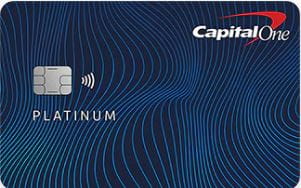
- Variable APR
- 29.74%
- Annual Fee
- $0
The easy to use Capital One Platinum Credit Card is a great way to help you build your credit when used responsibly. If you have a fair or limited credit score, you are likely to still be eligible for a Capital One Platinum Credit Card. See website for details.
- No hidden fees
- Eligible cardholders considered for credit line increase in as little as 6 months
- Reports to All 3 major credit bureaus
Discover IT Secured card
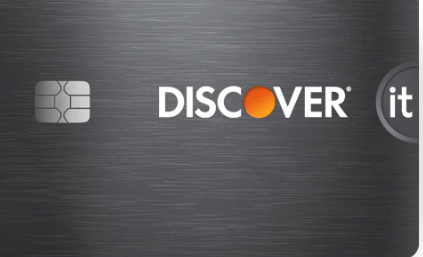
- Variable APR
- 28.24%
- Annual Fee
- $0
This credit card will help you build your credit history while earning rewards. Approval odds are great even for poor FICO® scores ranging from 300 to 629. See website for details.
- 1% + Cash back rewards
- Automatic credit line reviews after 7 months
- Refundable security deposit
Petal 1 Visa Credit Card

- Cash Back
- 2-10%
- Annual Fee
- $0
The Petal 1 No Annual Fee Visa Credit Card is available to applicants ranging from those with little to no credit all the way to those with fair credit. See website for details.
- Variable APR: 28.99%-33.99%
- Earn a credit line increase in 6 months
- No security deposit required
Avant Credit Card
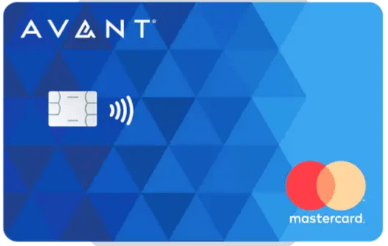
- Variable APR
- 29.99% - 35.99%
- Annual Fee
- $39
With no deposit required, this card can help build credit for those who use the card responsibly and pay their monthly bill on time.
- No Deposit Required
- Fast and Easy Application Process
- Returned Payment Fee: Up to $25
- See the Provider's terms for more information
Chime Visa Credit Card

- Variable APR
- 0%
- Annual Fee
- $0
This card is great for students or people with little to no credit or those who have a poor credit rating. Must have a Chime Checking Account and qualifying direct deposits of $200 or more.
- No credit check to apply
- Great for Building Credit
- Reports to all 3 credit bureaus
Indigo Platinum Mastercard

- Variable APR
- 35.9%
- Annual Fee
- $175
No security deposit required, designed specifically for those with less-than-perfect credit. See website for details.
- No security deposit required
- Reports to 3 major credit bureaus
- Use wherever Mastercard® is accepted in the U.S.
Credit One Bank Platinum Visa
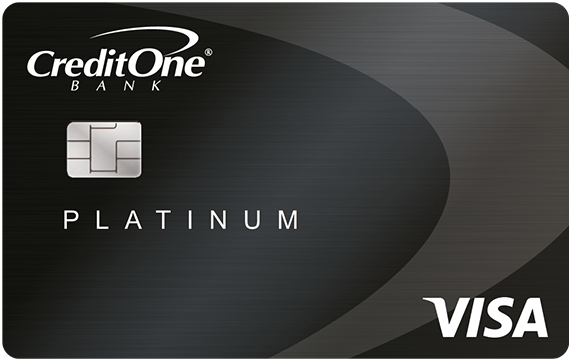
- Variable APR
- 28.99%
- Annual Fee
- $39
Those with good to excellent credit are eligible to apply for the Credit One Bank Platinum Rewards Visa Credit Card without the worry of any annual fee. Perfect for earning everyday rewards. See website for details.
- Unlimited 1% cash back rewards on eligible purchases
- Zero fraud liability coverage
- Free online access to your credit score
OpenSky® Secured Visa® Credit Card

- Variable APR
- 24.64%
- Annual Fee
- $35
Low minimum deposit required to open a secured account, good for building credit. See website for additional details.
- Flexible payment options
- Good for building credit
- Reports to all 3 major credit bureaus
Self Visa Credit Card
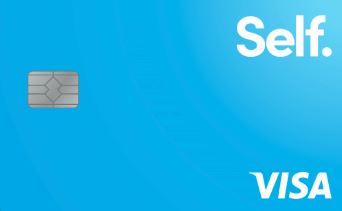
- Variable APR
- 28.24%
- Annual Fee
- $0
No credit check is required, offers a unique way to improve credit and savings simultaneously. See website for details.
- Variable APR: 28.24%
- $25 annual fee after the first year
- Reports to all 3 credit bureaus
Applying for a Nontraditional Credit Card
Applying for a nontraditional credit card can open the door to building or improving your credit profile. Here are steps to help you successfully apply for a nontraditional credit card:
- Research Your Options: Begin by exploring the various nontraditional credit cards available. Take note of their features, fees, and eligibility criteria to find a card that fits your financial situation.
- Review the Terms and Conditions: Before applying, carefully read the terms and conditions associated with the card, including interest rates, fees, and rewards programs so that you fully understand what to expect.
- Check Your Credit Report: Before applying, obtain a copy of your credit report to understand your current credit standing. If applicable, ensure there are no inaccuracies that could affect your creditworthiness.
- Gather Documentation: Collect the necessary information and documentation needed for your application. This typically includes your identification (like a driver's license), Social Security number, proof of income, and bank account details.
- Complete the Application: Visit the card issuer's website and fill out the online application form. Provide accurate information as required, and double-check for any errors before submission.
- Submit the Application: After reviewing your application, submit it for consideration. Many issuers provide instant approval or denial notifications, while others may take a few days to review your request.
- Activate Your Card: Once you receive your new credit card, follow the issuer's instructions to activate it before using it for purchases.
- Start Using Responsibly: Use your nontraditional credit card responsibly to build or improve your credit score. Make timely payments and keep your credit utilization low to reap the benefits of responsible credit behavior.
Nontraditional credit cards offer numerous advantages for consumers seeking greater financial flexibility and accessibility. By using alternative data, these cards provide opportunities for people new to credit or those recovering from financial difficulties to establish or enhance their credit profiles. The potential for fewer fees and tailored rewards programs makes these cards more economical and better aligned with personal financial goals.
As you consider your credit options, it's important to think about your unique circumstances and financial objectives. Nontraditional credit cards may be well-suited to those who require a more flexible approach to credit approval. Take the time to identify your specific needs, whether it’s building credit from scratch, improving a damaged credit score, or simply seeking a card with lower fees. Understanding your goals will help you make a more informed decision about which credit product best fits your situation.
Ultimately, choosing a credit card is a significant financial decision that warrants careful consideration. Nontraditional credit cards can serve as an invaluable tool in paving the way toward financial stability and greater creditworthiness. By thoroughly researching and comparing your options, you can select a card that not only meets your immediate needs but also supports your long-term financial aspirations. Embrace the opportunity to explore these innovative credit solutions and take proactive steps toward a healthier financial future.








